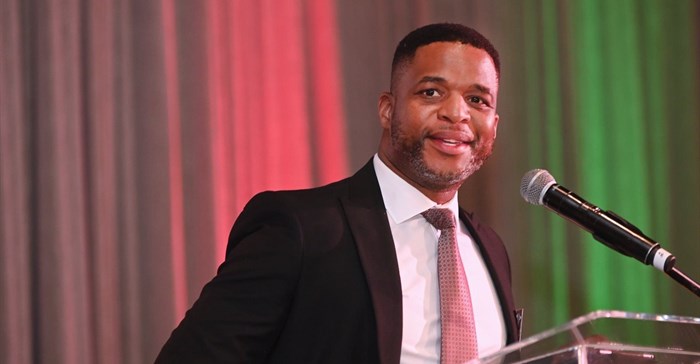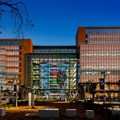The South African National Editors' Forum's (Sanef) annual fundraising gala dinner, in memory of the journalist organisations, editors, and journalists who were banned, harassed, assaulted, and imprisoned on Black Wednesday, 19 October 1977, took place in Johannesburg on Friday evening,

Source: © Twitter
Twitter The South African National Editors' Forum (Sanef) commemorated Black Wednesday (19 October 1977) with a fundraising dinner addressed by Mpho Makwana, outgoing Eskom Board chairman and sponsored by Absa
This year, Sanef has raised R2m, which will go towards building its media defence fund that supports legal cases to protect media freedom.
Sponsored by Absa, and attended by over 200 business guests, Mpho Makwana, outgoing Eskom Board chairman was the keynote speaker.
In his speech, Makwana said South Africa needed the media in 2023 more than ever to find ways to help rekindle our sense of humanity as a nation.
“Help us recover ourselves. We are getting deeper into a nation that is ripping itself apart.”
He said that it was a big task for the media at hand to help this nation focus, be guided out of despair and be moved from good to great.
In addition, he challenged businesses to be amongst the best corporate citizens in the country through value creation by supporting the fourth estate to remain independent and sustainable.
Business sector support for media
Sbu Ngalwa, Sanef chairperson, described the corporate sector's support for media freedom in the country as “a testament to its commitment to supporting the media industry in South Africa and Africa as a whole”.
He acknowledged the work of business in boosting journalism skills development initiatives such as the Sanlam Summer School of Financial Journalism held in October every year for the past 20 years.
This year MTN-sponsored Media Innovation Programme equipped journalists with skills to better report on the technology sector, instrumental in improving the quality of journalism in Nigeria.
Similarly, Sanef launched the Sanef Fellowship in Financial Journalism at Wits University sponsored by Deloitte, which equips journalists with skills to unpack complex financial and economic concepts and make them accessible to the public.
Helping media houses survive
“As journalists, we are facing unprecedented challenges that require urgent attention. The media industry is in dire straits, and we need to find innovative ways to sustain it. We cannot afford to stand by and watch as media houses struggle to survive,” says Ngalwa.
He said South Africa needed to recognise that journalism is a public good, and the cost of data was too high for ordinary South Africans to access news. He appealed to telecommunications networks to seriously “consider zero-rating news sites to make them accessible to everyone”.
“This will also help in the fight against fake news because only news organisations that subscribe to the Press Code and are members of the SA Press Council will qualify for zero-rating,” he says.
Free media and higher economic prospects
Sanef adopted the 3 May World Press Freedom Day theme, Shaping a Future of Rights: Freedom of expression as a driver for all other human rights, which signifies the enabling element of freedom of expression to enjoy and protect all other human rights.
The theme was chosen by the Unesco marking 30 years since the UN General Assembly’s decision proclaiming an international day for press freedom.
It is also a reminder to governments of the need to respect their commitment to press freedom and a day of reflection among journalists about issues of press freedom and professional ethics.
Akash Singh, Absa Group Chief Compliance Officer, said not everyone or every country has the privilege of enjoying media freedom rights.
South Africa should not take for granted the fact that it is celebrating 30 years of media freedom as it contemplates the future. This country should value the media as the key pillar of our democracy.
“We value the media as a key pillar in safeguarding Africa’s hard-fought liberties and ensuring a vibrant and prosperous society,” says Singh.
Vuslat Bayoglu, Menar MD, a private investment company with a diversified minerals portfolio, says there is a relationship between media freedom and the economic wealth of nations. The free media is and tends to be more visible in countries that have higher economic prospects.
“Menar hopes to keep supporting media freedom initiatives to ensure that there is no proliferation of brown envelop journalism in this country,” says Bayoglu.










































